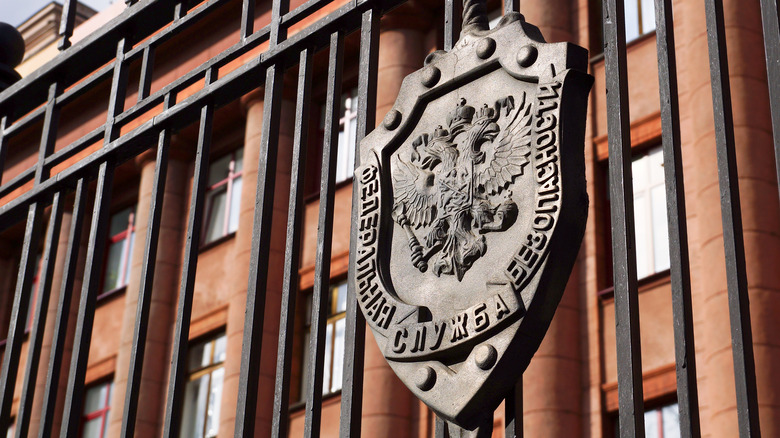The Real Reason The KGB Fell Apart
The Russian state security agency known as the KGB was a notorious player in the 20th-century drama of the Cold War. According to History.com, the spy agency was extremely successful in gathering intelligence on the United States and suppressing resistance to Soviet rule within Russia and bloc nations. The KGB was able to turn U.S. naval officer John Anthony Walker Jr. at the end of the 1960s. He gave the Soviets classified information that allowed them to track things like U.S. ship locations and other naval activities. He was finally arrested in the 1980s. CIA officer Aldrich Ames also turned traitor and worked as a mole for the KGB, divulging the locations of several CIA agents across the globe. In 1994 he was convicted of espionage, a charge for which he is still in prison today.
The KGB fell apart along with the Soviet Union in 1991 and was replaced by the Federal Security Service of the Russian Federation, or FSB. However, there are a few reasons to believe that the change may have been merely nominal in nature, and that Russia is still up to its old spy tricks, albeit with a 21st-century twist.
Is the FSB the new KGB?
There are quite a few similarities between the KGB of old and the current FSB. For one, the latter has its offices in the same building as the former. It also serves a similar purpose to the KGB, it just doesn't have as bad a reputation. But as History.com notes, it may be garnering its own scandalous renown. It drew quite a bit of negative attention after being implicated in meddling with the 2016 U.S. presidential election. There are also reports that Russian President and former KGB agent Vladimir Putin has plans merge the FSB with the Russian Foreign Intelligence Service to form what he would call the Ministry of State Security, eerily similar to what Stalin called the KGB's precursor.
Harkening back to that pre-Cold War agency, the NKGB, provides insight into how Russia regularly manages its intelligence agencies. The NKGB was also extremely successful before and during World War II. It was even reported to have planted spies in the nuclear weapons labs in Los Alamos, New Mexico, during the war. It would appear that Russia's spying attitude and efforts remain the same over time. The only thing they change is the name of the agency peeking through the keyhole.

